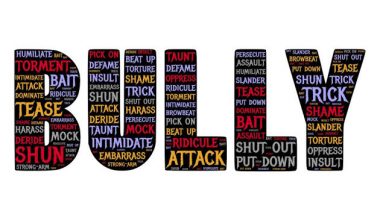Disciplinary sanctions like expulsion are a commonly available tool in school systems to punish disruptive students. While these tools aim to deter misbehaviour, they exclude offenders from restoring discipline in the classroom at the potential cost of inflicting harm on sanctioned students.
If your child has been expelled, you may wonder about your options. One common question parents ask is whether their child can attend a different school in the same district. In this blog post, we will explore the answer to this question and provide some information that can help you navigate this challenging situation.
Table of contents
What Does It Mean To Be Expelled From School?
Expulsion is the permanent expulsion of a student from the classroom. When a student is expelled from school, he or she is often not allowed to use any educational resources the institution offers, participate in extracurricular activities, or even be on school property.
Expulsion is a disciplinary measure used in schools for the most egregious code of conduct offences. It is regarded as the most severe punishment that teachers can impose as a part of school discipline. This practice has long been utilized in private and public school settings in the United States, but over the past ten years, it has become more popular and contentious for various reasons.
The length and reason for expulsion vary by state and school district. A school board will schedule a hearing to determine if a student should be expelled for their offence before expulsion. Each school board is free to choose its procedure, but it is required to give a copy of the policies and information about the procedure to the kid and their family.
READ ALSO: Is AUC Medical School the Best Medical School? 2023 Comprehensive Analysis
What Can Lead To A Child’s Expulsion From School?
Since expulsion is the most serious disciplinary action that a school can take, it is seen as a last-resort punishment by the school.
In public schools, it is reserved for the most serious behaviours. Public schools are responsible for providing education to children living within their boundaries. Federal and state laws often guide grounds for expulsion.
Under the federal Gun-Free Schools Act, any student who brings a gun to school must be expelled for at least one full year. Many states have laws requiring expulsion for bringing other weapons, such as knives, to school. Depending on the state, bringing, selling, or using drugs at school may also lead to expulsion.
Private schools are not mandated to teach all children in a given area. They may make regulations regarding who they expel. These rules should be included in a student handbook. While private schools will also save expulsion for only severe behaviours, private schools may include behaviours that they believe do not comply with the purpose of the private school.
Public and private schools will also expel students for repeated dangerous behaviours, like bullying or fighting. They may have rules that many school suspensions will automatically lead to expulsion, regardless of the type of behaviours that are repeated.
SEE ALSO: I am a Law School Newbie. What Should I Know in 2023?
What Are The Consequences Of Being Expelled From School?
The consequences of being expelled from school can be severe. The student will not be allowed to attend the school where they were expelled, which could have a long-term impact on their academic and social development. Moreover, the student may face difficulties transferring to another school within the same district, as the new school may have concerns about accepting a student expelled from another school.
Expelled students are more likely to experience unfavourable consequences in the future. The student may get caught in what is known as the “school-to-prison pipeline” due to severe interference with academic achievement and the potential referral of the student from school jurisdiction to police authorities. This phrase emphasizes how expulsion as a disciplinary mechanism encourages at-risk pupils to lead criminal lives and increases their likelihood of leaving school before they complete their high school education. The pupil is frequently immediately turned to the juvenile court system, which criminalizes him or her at a young age.
Furthermore, expulsion from school reduces a student’s involvement with education, and research suggests that suspension and expulsion do nothing to dissuade students from misbehaving in the first place. According to a recent study, being suspended or expelled from school increases a student’s likelihood of being arrested within the same month. If your child is denied access to education, there is a greater chance that they may end up in jail or out of work.
According to research done by the International Journal of Educational Development, if students can re-enrol after being expelled – as the Ministry of Education should harbour for, by law – and smoothly transit between schools, then it could be argued that little harm would be inflicted on students and expulsions would be a useful mechanism to avoid the negative effects that the literature has documented of disruptive behaviour.
Read Also: Can You Get Your High School Diploma Online For Free
Can A Child Expelled From One School Attend Another school In The Same District?
Each school district has policies regarding expulsions and transfers, which can vary widely. Sometimes, a student expelled from one school may be allowed to transfer to another school in the same district, but this decision is ultimately up to the new school and its administration. In other cases, the district may require the student to attend an alternative school or program before they can transfer to another school.
What Are Some Alternatives To Transferring To A New School?
If transferring to a new school in the same district is not an option, there are other alternatives that families can consider. Homeschooling is an option for families who are comfortable taking on the responsibility of their child’s education. Online schools are also an option that can provide a flexible and personalized learning experience.
Additionally, some districts may offer alternative education programs for students who have been expelled, which can provide a path back into a traditional school setting.
Let’s holistically take a look at the alternative options available:
1. Alternative Schools
The government or private organizations may sponsor alternative schools, and they frequently have small student-to-faculty ratios and flexible scheduling options, such as nighttime classes. Whether pupils would benefit from traditional core academic coursework, remedial teaching, or vocational training will also influence the program.
Additionally, these institutions provide their students with services, including counselling, behavior management, and life skills and dispute resolution training.
2. Homeschooling
When a parent or guardian chooses to homeschool their child, they manage the curriculum and give tests. This decision is especially difficult for a parent because it necessitates a considerably higher level of involvement. Still, it allows parents to monitor a child’s development and reaction to expulsion closely.
If you want to explore this option for your student, check out these Homeschooling programs.
Check out the 15 Best Universities in the UK for Politics | 2023
3. Online Schools
Several organizations offer online classes. Like homeschooling, these self-paced courses demand student discipline and organisation, but they could also benefit those who struggle with a more structured school environment. This might also be a viable option for students who need remedial credit recovery courses that allow them to make up for any classes they’ve failed in the past.
4. GED Programs
This choice is often given to students who have fallen significantly behind in their studies or are in danger of dropping out. It is open to those who satisfy the high school equivalency exam age criteria. Students receive tutoring and fundamental academic teaching to prepare for the GED exams. Some programs may also provide career counselling.
These High School Equivalency preparation courses contain additional materials to aid students in their GED test preparation and HiSET and TASC exam preparation.
READ ALSO: How to get your GED classes online: Free classes you can take in 2023
How Does The Expulsion Process Work?
A hearing must be held before a student’s formal expulsion from school. Someone from your child’s school will often contact the district superintendent to request that the student be expelled. A date for the student’s expulsion hearing will be communicated to their parents or other primary caregivers.
You must appear at this hearing since it will be your only chance to speak up for them. The hearing will proceed without you if you decide not to show up, and the decision will be carried out.
The school will make its case at a hearing to determine whether your child’s school should be expelled. Evidence and witnesses will be employed to demonstrate that your child violated the school regulations. You can then explain why your child shouldn’t be expelled after this. You are free to use the witnesses you contacted, present your evidence, and cross-examine any witnesses the school called.
Although less formal than a court hearing, an expulsion hearing is legal. Even though you can speak up for your child, you can decide to have an attorney represent them instead.
Following the presentation of evidence, each party is invited to make a last statement or closing contribution. At this point, the decision-maker or board of decision-makers will decide whether or not to expel your child from school. You may be confident that the decision-makers will be independent of the Board of Education or the local community.
How To Avoid Expulsion
Your academic record will be permanently altered if you are expelled. The expulsion stays on your record even if you enrol again and graduate. The wisest course of action is to prevent an expulsion if possible.
Make sure you are familiar with the rules and regulations of your institution. If you’ve broken a rule, find out what could happen and what you can do to prevent expulsion. You can learn more about the policies at your school from a student adviser.
Investigate the appeals procedure if the school does expel you. A dismissed expulsion will have less effect than one still recorded on your record. In general, obey your school’s rules and think about withdrawing before an academic expulsion.
For instance, a temporary withdrawal is preferable to expulsion if you are on academic probation due to a health condition or mental illness. If you are dismissed from college, consider what led to your dismissal. After that, decide what to do next.
SEE ALSO: What is a Student Profile? What Makes Up a Student Profile
Is Expulsion The Same As Suspension?
Expulsion and suspension are different forms of disciplinary actions in schools and have different consequences and durations.
Suspension is a temporary disciplinary action that removes a student from school for a specified period, usually a few days to a few weeks. During the suspension, the student cannot attend classes, participate in school activities or events, or access school facilities. The purpose of suspension is to provide a consequence for the student’s behavior, allow time for the student to reflect on their actions, and give school administrators time to investigate the situation.
On the other hand, expulsion is a more severe disciplinary action that permanently removes a student from a school or district. Expulsion is usually reserved for students who have committed serious offences like violence, drug use, or repeated disruptive behavior. Expulsion means that the student cannot attend the school or district anymore, and it can have serious long-term consequences for their academic, social, and emotional development.
While both suspension and expulsion are disciplinary actions in response to student behavior, the main differences between them are the severity of the action, the duration of the consequences, and the intention of the discipline. Suspension is usually a temporary measure to correct a student’s behavior, while expulsion is a permanent solution to address severe and ongoing behavior problems.
Can You Go Back To School After Expulsion?
Students expelled from college can still earn a degree. However, an expulsion will limit their options.
Below are four steps you can follow to return to college after an expulsion:
1 Consider an Appeal
Consider appealing your expulsion if you want to be admitted back to your prior school. A school may reject an appeal because expulsions are decided through a process. You may reapply if the school decides to reverse the expulsion.
2 Consider Readmission
Schools have readmission rules in addition to behavior standards. After being expelled from some schools, you can seek reinstatement. For instance, University of Hawaii at Manoa dismissed students with poor GPAs who may reapply after a year.
3 Contact Your Former School
Contacting your former school is still good if you apply to other schools. Request the materials they provide to other schools when you apply for admission. It’s essential to know what records the school shares so you can explain the expulsion.
4 Disclose the Expulsion
Inform prospective institutions about your expulsion before applying. Never make up an expulsion or tell a lie. Your new school may expel you for doing it. Instead, explain the circumstances surrounding the expulsion on your record.
FAQs
In public schools, it is reserved for the most severe behaviours. Public schools are responsible for providing education to children living within their boundaries. Federal and state laws often guide grounds for expulsion.
Expulsion and suspension are different forms of disciplinary actions in schools and have different consequences and durations.
Each school district has policies regarding expulsions and transfers, which can vary widely. Sometimes, a student expelled from one school may be allowed to transfer to another school in the same district, but this decision is ultimately up to the new school and its administration.
Conclusion
If your child has been expelled, it can be challenging and stressful for your family. While transferring to a new school in the same district may be an option, it is important to understand that there may be other alternatives to consider. By working with your child’s school district and exploring different options, you can help your child continue their education and succeed.
References
- classful.com – Here’s What to Do When Your Child Is Expelled From School (Correct Child’s Behavior)
- verywellfamily.com – What to Do When Your Child Is Expelled From School
- bestcolleges.com – Ask a Professor: What to Do If You’ve Been Expelled From College




